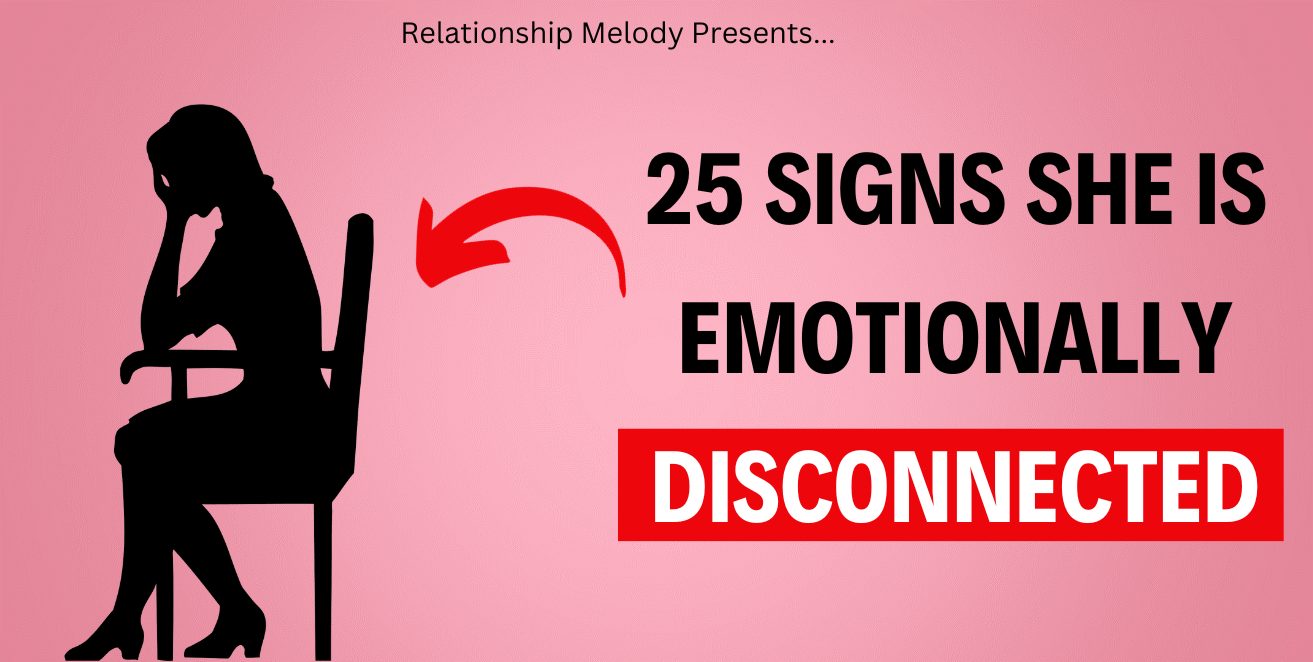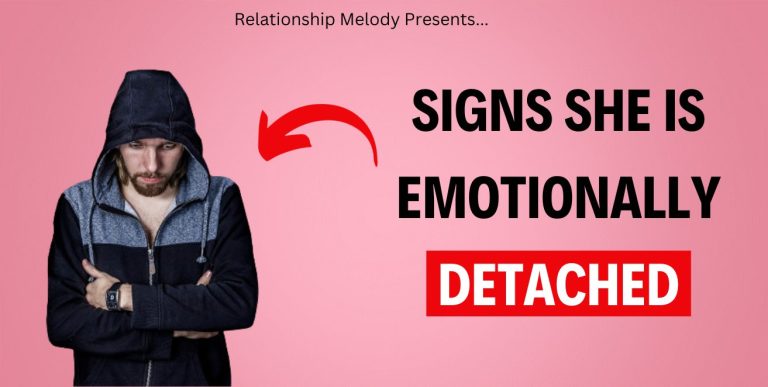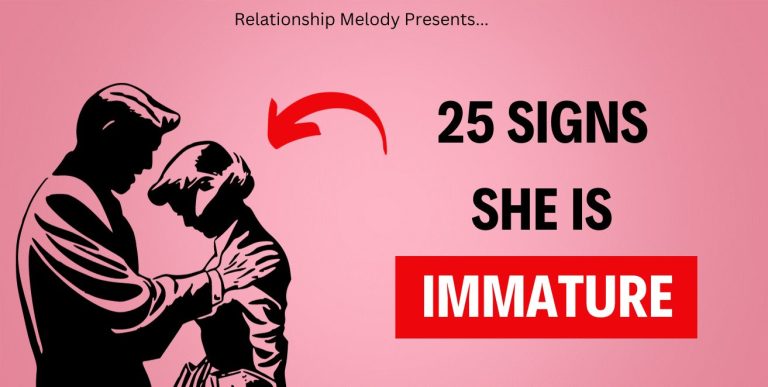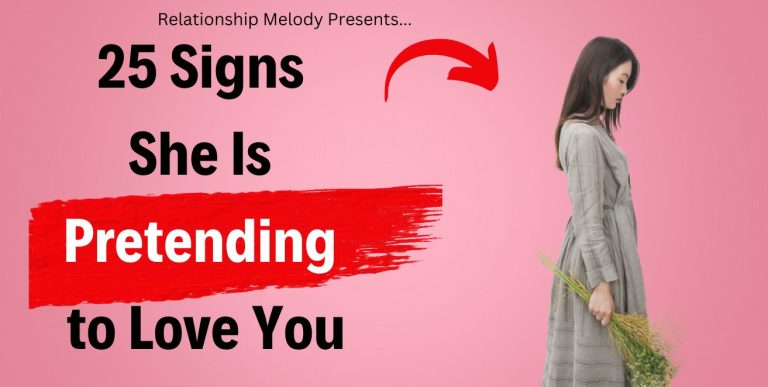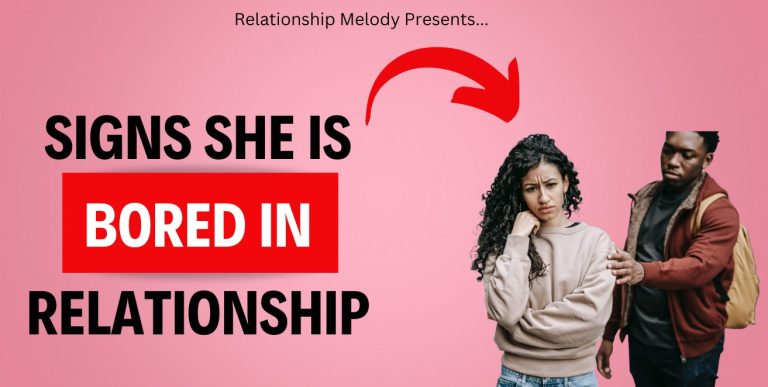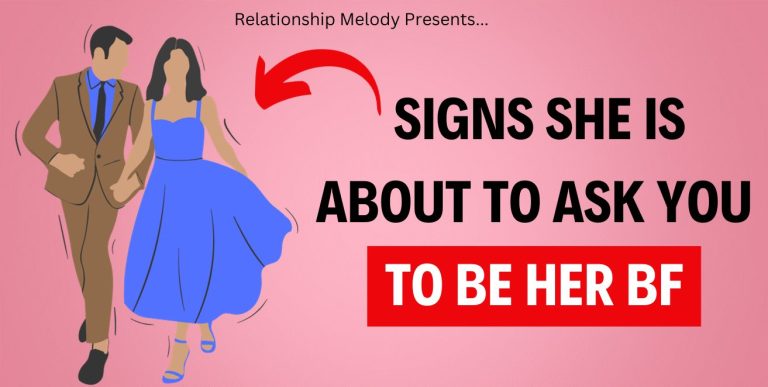25 Signs She Is Emotionally Disconnected
Emotional connection plays a vital role in nurturing healthy relationships and overall well-being.
However, some individuals may exhibit signs of emotional disconnection, which can significantly impact their ability to form deep and meaningful connections with others.
In this blog post, we will explore 25 signs that may indicate she is emotionally disconnected.
Recognizing these signs can help us better understand her emotional state and provide the necessary support and empathy.
It’s important to approach the topic with compassion, as emotional disconnection can stem from various factors, including past traumas, mental health challenges, or personal experiences.
By understanding the signs, we can foster a more empathetic and supportive environment for those who may be struggling with emotional disconnection.
25 Signs She Is Emotionally Disconnected
These are the 25 signs that you need to know.
Sign #1: Avoidance of Vulnerability:
She may actively avoid being vulnerable or sharing her innermost thoughts and feelings with others, keeping an emotional distance as a means of self-protection.
Sign #2: Difficulty Expressing Emotions:
When she struggles to express her emotions or appears detached from her own feelings, it can indicate a disconnection from her emotional self.
Sign #3: Lack of Empathy:
She may exhibit a limited capacity for empathy, showing little understanding or concern for the emotions and experiences of others.
Sign #4: Superficial Conversations:
Engaging in predominantly superficial or surface-level conversations and avoiding deeper emotional discussions is a common sign of emotional disconnection.
Sign #5: Absence of Active Listening:
She may demonstrate a lack of active listening skills, appearing disinterested or distracted during conversations, further indicating an emotional disconnect.
Sign #6: Inability to Connect Emotionally:
Despite spending time with others, she may struggle to establish meaningful emotional connections or maintain intimacy in relationships.
Sign #7: Repression of Emotions:
An emotionally disconnected person often represses or suppresses their emotions, keeping them hidden and avoiding emotional expression.
Sign #8: Disinterest in Others’ Lives:
She may display little interest in the lives, achievements, or struggles of those around her, indicating a lack of emotional investment in their well-being.
Sign #9: Avoidance of Intimate Relationships:
An emotionally disconnected person may avoid or sabotage intimate relationships, fearing the emotional vulnerability that comes with them.
Sign #10: Difficulty Trusting Others:
She may have difficulty trusting others, often keeping a safe distance and withholding personal information or emotions.
Sign #11: Emotionally Detached Body Language:
Non-verbal cues, such as a lack of eye contact, crossed arms, or rigid posture, can indicate emotional disconnection.
Sign #12: Emotional Flatness:
She may exhibit a general sense of emotional flatness, lacking the range and depth of emotions typically experienced in everyday life.
Sign #13: Disregard for Boundaries:
An emotionally disconnected person may disregard personal boundaries, demonstrating a lack of respect for the emotional boundaries of others.
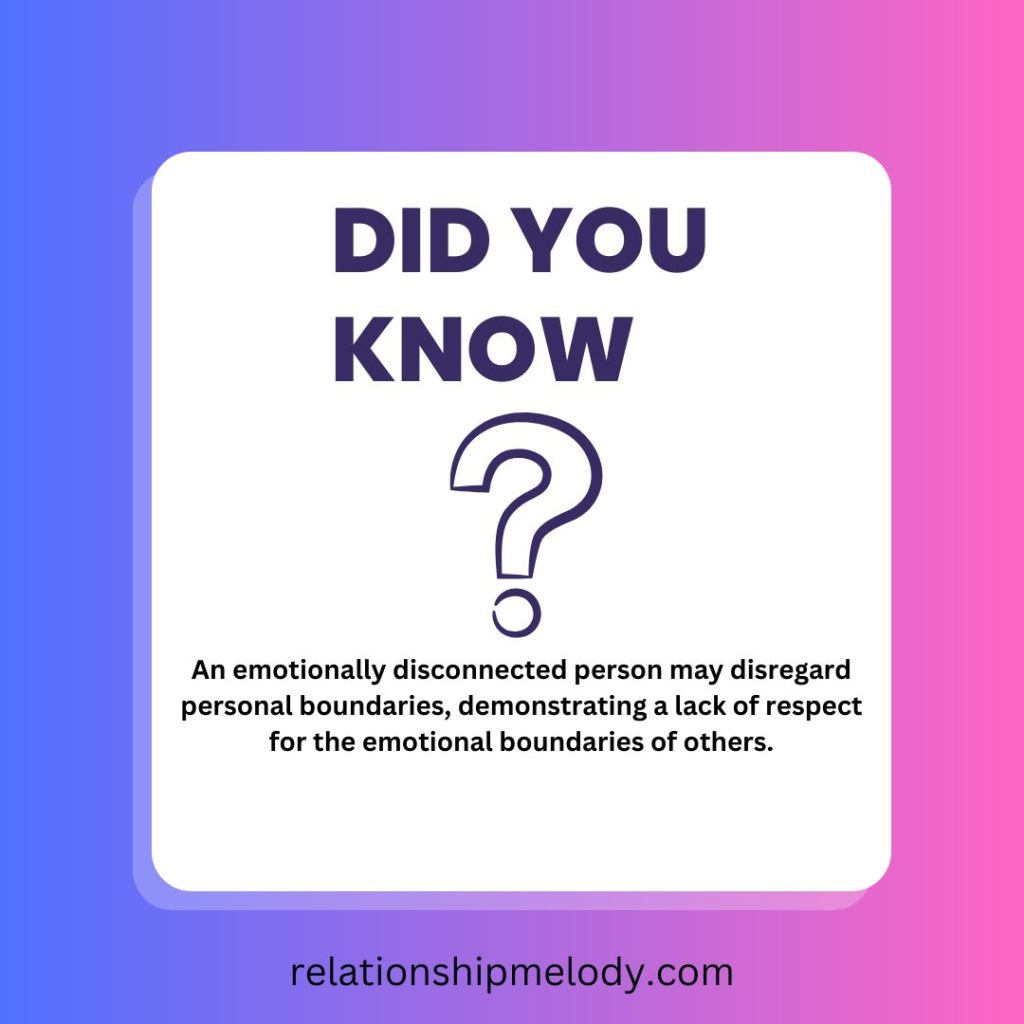
Sign #14: Indifference to Conflict:
She may display indifference or apathy towards conflicts or disagreements, avoiding emotional engagement or resolution.
Read more like this: Signs she is emotionally intelligent
Sign #15: Preference for Solitude:
Spending a significant amount of time alone and avoiding social interactions can be a sign of emotional disconnection and a desire to avoid emotional intimacy.
Sign #16: Difficulty Processing Emotions:
When she struggles to process and make sense of her own emotions, it can lead to a sense of disconnection from herself and others.
Sign #17: Lack of Emotional Resonance:
An emotionally disconnected person may fail to resonate with or be moved by emotionally charged situations or events.
Sign #18: Emotional Inaccessibility:
She may be emotionally inaccessible, making it challenging for others to connect with her on an emotional level or seek support when needed.
Sign #19: Disconnection from Personal Values:
A sense of disconnection from personal values and what truly matters to her can indicate an overall emotional disconnection.
Sign #20: Escapist Behaviors:
Engaging in excessive escapist behaviors, such as substance abuse, excessive screen time, or compulsive behaviors, can be a sign of emotional disconnection and avoidance.
Sign #21: Difficulty Recognizing Emotions in Others:
She may struggle to recognize or accurately interpret the emotions of others, leading to a lack of empathy and understanding.
Sign #22: Emotional Numbness:
Experiencing a consistent state of emotional numbness or detachment from emotions can indicate a significant disconnection from one’s emotional self.
Sign #23: Lack of Emotional Support:
She may have limited emotional support systems or fail to seek support when needed, further reinforcing the pattern of emotional disconnection.
Sign #24: Inconsistent Emotional Responses:
Her emotional responses may appear inconsistent or incongruent with the situation, reflecting a disconnection from authentic emotional experiences.
Sign #25: Unwillingness to Seek Help:
An emotionally disconnected person may be resistant to seeking help or professional support, hindering their ability to address underlying emotional issues.
Conclusion
Recognizing the signs of emotional disconnection is the first step in fostering empathy and understanding for individuals who may be struggling.
It’s important to approach these individuals with compassion, as emotional disconnection can be a result of past traumas, unresolved emotions, or other underlying factors.
By creating a safe and non-judgmental space, we can encourage open communication and support those who may be seeking emotional reconnection.
Remember that everyone’s journey is unique, and professional help may be necessary in some cases.
Together, we can promote emotional well-being and cultivate meaningful connections that contribute to a healthier and more fulfilling life.
Liked Our Article? Feel Free To Support Us
Our Patreon Page: https://www.patreon.com
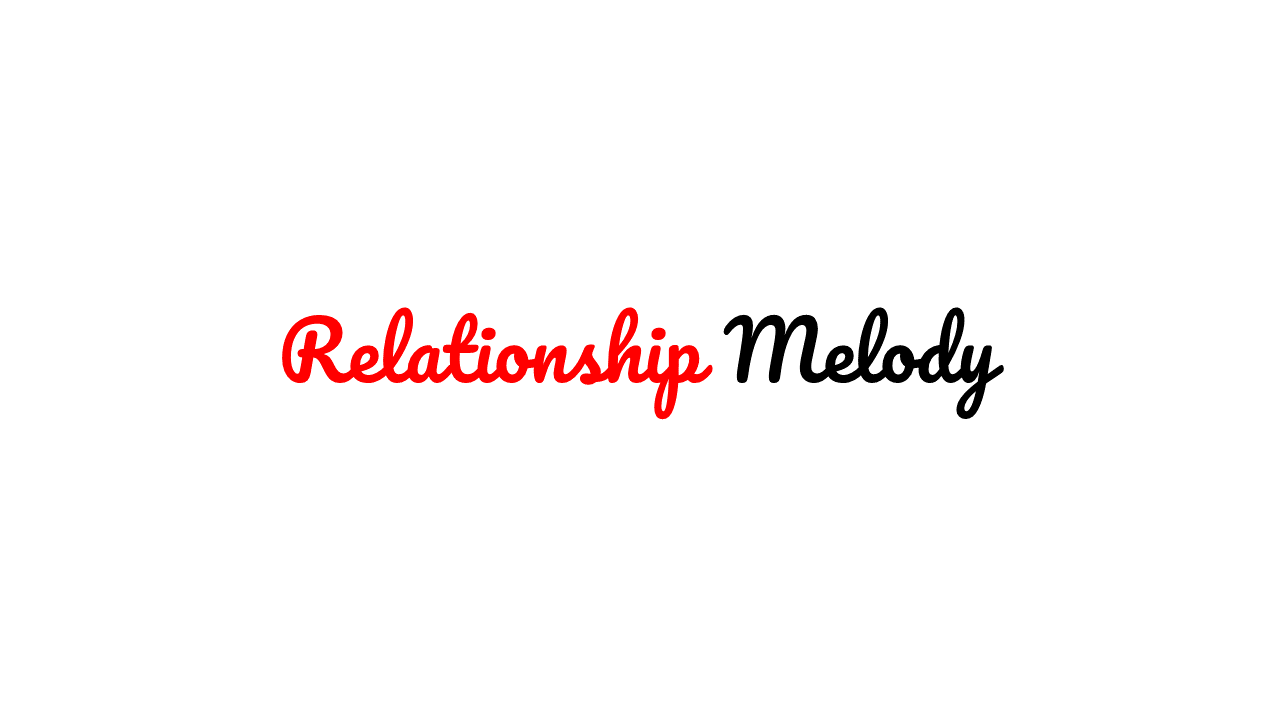
Welcome to Relationship Melody! Our website is dedicated to all things on relationships, dating, and love! We are passionate about helping you navigate the ups and downs of love, and our goal is to provide you with valuable insights and information that will make your journey toward a fulfilling relationship smoother and more enjoyable.

